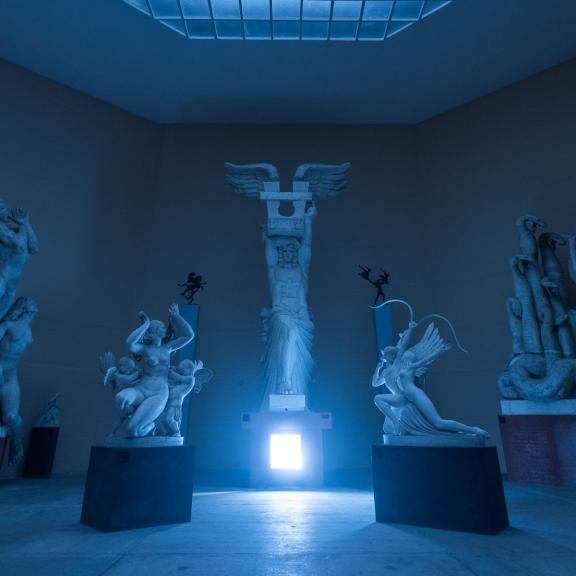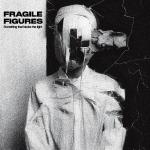The Age of Aquarius, which gives its name to Perturbator's new album, is, in astrology, a blessed period characterized by technological progress, science, freedom, and critical thinking. For some occultists, it will come with the return of Christ to Earth. For hippies, it is a happy time marked by solidarity, cooperation, and detachment from material things. Has Perturbator put away his fluorescent pentacles to embrace New Age brotherly dreams? Will James Kent knock on our door, a flower crown on his head and a stick of incense in his hand, inviting us to join the meditations of his “thought group”?
Come on, let's enjoy this rhetorical suspense going for a few more words: after all, this isn't the artist's first “rebirth,” given that he abandoned his flashy neon lights nearly ten years ago with New Model to plunge deeper and deeper into depression and darkness, retaining the smell of rain and sticky despair from cyberpunk worlds rather than the flashy colors. But no, obviously, Perturbator hasn't turned to New Age utopia, and it's a safe bet that the title is meant to be taken ironically, or to tell us, “OK, guys, those days are over/never happened.” The Age of Aquarius begins with the end of the world, Apocalypse Now, a track haunted by the melancholy of Kristoffer Rygg (Ulver) in which Perturbator mixes his increasingly assertive cold wave influences and his taste for catchy pop, weighed down by a few crushing and threatening layers to great effect.
War, violence, belligerent partisan thinking: this is the backdrop to this new album, whose cinematic scope is immediately apparent. Perturbator evokes and narrates without using words, or almost: very quickly, we also find Tristan Shone of Author & Punisher in a rather unusual register, as he is deprived of his characteristic machines for the duration of the introspective Venus. With Lustful Sacraments in 2021, Perturbator opted for a more contemplative, varied, and depressive sound, mixing his synthwave with cold wave and industrial in a more pronounced way. The Age of Aquarius continues in this vein and refines it, adding more depth and variety. The atmospheres are carefully crafted, the electronic landscapes come to life in an almost palpable way as we wander through the dark alleys of the album, whose synthetic coldness does not exclude very real emotions.
But don't worry, there's dancing too. With the frenzy of Lunacy, the heaviness and groove of The Glass Staircase, and the angsty energy of Mors Ultima Ratio, you'll find plenty to get you moving in the dark, looking gloomy, as Perturbator conjures up aesthetics inspired by B-movies (action, horror, or science fiction films alike), while skillfully juggling contrasts, rhythm breaks, and layered overlays. In the catchy genre, in the middle of the album, The Art of War marks both a shift in the album, with the second half focusing more on free will than conflict, and a martial orientation whose tension and nervousness is boosted by strong EBM, EBSM, and cyberpunk tendencies (think Sierra Veins, for example).
Since his debut, Perturbator has always excelled at creating atmospheres and futuristic, spectral soundscapes, whether festive or desperate. This is more evident than ever with The Age of Aquarius, particularly in Hangover Square, 12th House with its mysterious bass lines, and the dreamlike Swimming Pool, whose minimalism and piano create an almost surreal interlude, a soothing bubble of contemplation amid the ruins.
The Age of Aquarius, a misanthropic and apocalyptic album? Sure, there's dancing, but the tone is definitely pessimistic. However, towards the end, James Kent seems to add a little wine to the water of his icy pool, first by inviting Greta Link back for the melancholic Lady Moon, then Alcest for the title track at the end. Ten minutes that alternate between drowning and breathing, darkness and light, during which the rhythm intensifies like a race in which hope is reborn, even though Neige's vocals plunge deeper and deeper into the abyss of black metal. Contrasts and ambiguity, once again... However, we know that in various mythologies, the end is only the beginning of a new cycle. So, what if, despite its darkness, beginning with the apocalypse, The Age of Aquarius actually ends with the hope of renewal? We'll debate this in the darkness. The only thing that is certain for now is that the futuristic specters that roam the album will take hold of your soul as well as your body, haunting your gaze and your behind: you will be sad and disillusioned, but you will move!





